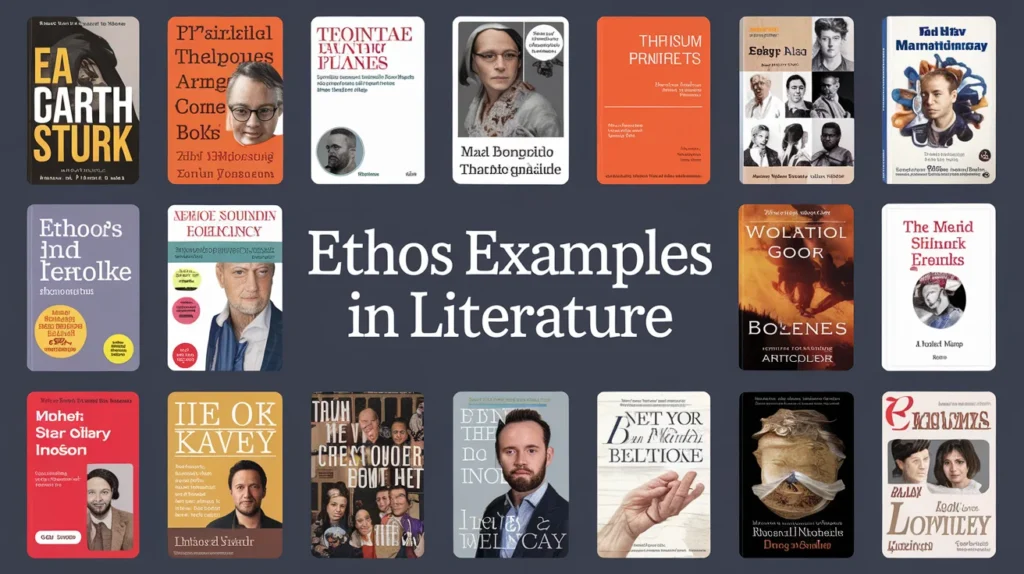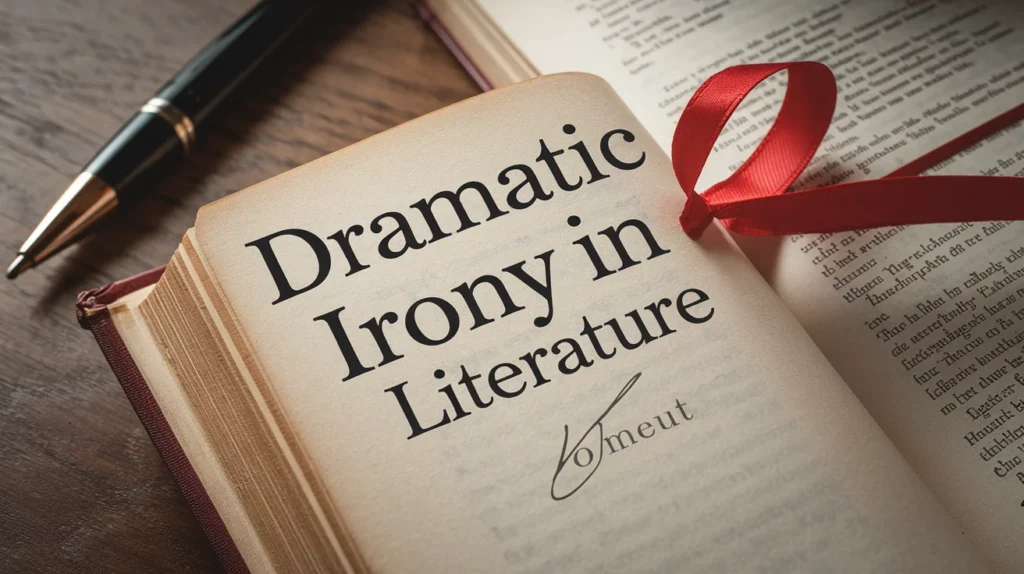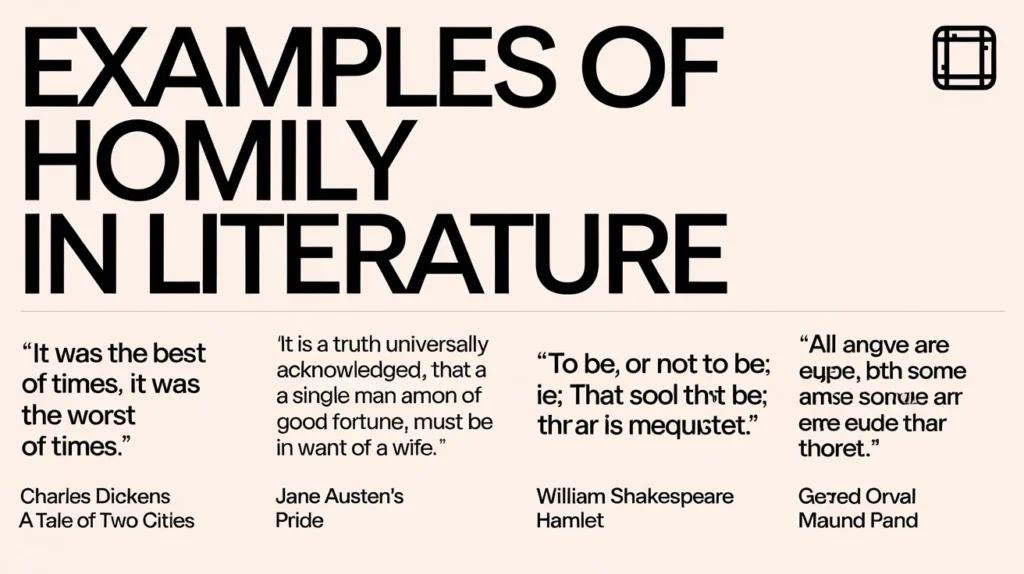Have you ever read a book and immediately trusted the narrator? Or maybe a character gave you a sense of authority and moral credibility, making their words hit harder? That is ethos in action. Ethos is one of the core tools writers use to convince readers, and it’s everywhere in literature—from classic novels to modern-day fiction.
In this article, you’ll explore what ethos really is, why it matters in storytelling, and how authors build it through characters, tone, and structure. We’ll break it down with real-world literary examples, detailed explanations, and useful comparison tables. Whether you’re a student, writer, or book lover, this guide will help you see literature in a brand-new light.
We’ll keep the language simple, friendly, and natural, like a conversation. And we won’t just skim the surface. This post goes deep, giving you everything you need to fully understand ethos in literature. Let’s dive in.
What Is Ethos?
Ethos comes from the Greek word for “character.” In rhetoric, it means credibility or trustworthiness. When a speaker or writer uses ethos, they’re trying to show they’re worth listening to. This can come from their morals, expertise, or personality.
Key Facts about Ethos
| Feature | Description |
| Origin | Greek, meaning “character” |
| Introduced by | Aristotle in his work Rhetoric |
| Purpose | To establish the speaker/writer as credible, honest, and relatable |
| Used in | Speeches, essays, ads, literature, debates, and storytelling |
Ethos vs. Pathos vs. Logos
- Ethos: Appeals to character and credibility
- Pathos: Appeals to emotion
- Logos: Appeals to logic and reason
Aristotle believed ethos was the most important of the three. Why? Because if the audience doesn’t trust the speaker, they won’t believe anything else they say.
The Function of Ethos in Writing

Ethos isn’t just for speeches or political debates. In literature, it helps authors:
- Shape characters that readers trust
- Develop believable narrators
- Build strong arguments inside stories
- Add depth to moral or ethical decisions
Why Ethos Matters in Literature
Good literature makes us believe in the world the author creates. Ethos plays a huge role in that belief. For example:
- A doctor character with clear moral values will be more trusted by readers.
- A first-person narrator who admits flaws might come across as more honest.
- Dialogue that sounds sincere helps build a character’s credibility.
Writers Build Ethos Through
- Professional identity (doctor, judge, teacher)
- Tone of voice (calm, fair, consistent)
- Past actions (good deeds, sacrifices, truth-telling)
- Reputation within the story’s world
- Language and diction (educated, respectful, moral)
How to Identify Ethos in Literature
So how can you spot ethos in a novel or story?
Checklist: 5 Signs of Ethos in Literature
- The character holds a respected role (e.g., leader, parent, elder)
- The narrator has access to exclusive knowledge or insight
- Others in the story look to them for guidance
- They speak or act in ways that reflect fairness and integrity
- They acknowledge flaws or doubts, which adds honesty
“Ethos builds a bridge between character and reader—it invites trust.”
Watch for Ethos in These Literary Elements
| Element | How Ethos Shows Up |
| Narration | The voice feels honest, balanced, and morally grounded |
| Dialogue | Characters speak with experience, empathy, and fairness |
| Backstory | Reveals past actions that add credibility |
| Reputation | Other characters respect or follow them |
Case Study: Atticus Finch
In To Kill a Mockingbird, Atticus Finch is the perfect example of ethos. He’s a lawyer, a father, and a man of integrity. He stands up for what’s right—even when it’s unpopular. His words carry weight because of who he is and how he lives.
Famous Ethos Examples in Literature
Let’s break down real examples of ethos in action. Each of these characters earns the reader’s trust through their actions, roles, and voice.
Classic Literary Examples
- Atticus Finch – To Kill a Mockingbird by Harper Lee
Ethos: Moral clarity, professional integrity, calm in crisis - Elizabeth Bennet – Pride and Prejudice by Jane Austen
Ethos: Witty, honest, and values self-respect over wealth - Jean Valjean – Les Misérables by Victor Hugo
Ethos: Ex-convict turned honest man who cares deeply for others - Dumbledore – Harry Potter by J.K. Rowling
Ethos: Wise, strategic, deeply respected by the wizarding world - Narrator in 1984 – George Orwell
Ethos: Speaks truth in a world of lies, highlighting inner resistance
Modern & Fictional Ethos Characters
- Ms. Williams – The Education Solution by Sara Thomas
Ethos: Dedicated teacher who advocates for underprivileged students - Prime Minister Reed – The Road to Peace by David Johnson
Ethos: Political leader striving for nonviolent solutions - Dr. Roberts – The Cure by John Smith
Ethos: Ethical scientist who puts human life before profit - Character A – The Importance of Dialogue by Jane Doe
Ethos: Bridges communities with honest conversations - Dr. Hanson – Call to Action by Jane Kramer
Ethos: Doctor fighting misinformation in a health crisis - Mr. Thompson – The Honorable Business by Timothy Clark
Ethos: Entrepreneur who chooses ethics over greed - Senator Patel – The Fight for Reform by Jack Corner
Ethos: Transparent policymaker advocating for justice
Comparison Table of Ethos in Literature
| Character | Role | Why They’re Trustworthy |
| Atticus Finch | Lawyer/Father | Consistent values, respects all people |
| Dr. Roberts | Scientist | Puts truth over fame or money |
| Senator Patel | Politician | Open, honest, driven by justice |
| Elizabeth Bennet | Daughter | Speaks truth, values self-respect, challenges status quo |
How Authors Construct Ethos in Literature
Building ethos takes more than just giving a character a fancy title. Authors use multiple tools to create believable and trustworthy personas.
Tools Authors Use
- Character professions – Doctors, teachers, judges carry built-in authority
- Dialogue – Honest, moral, intelligent speech shows inner character
- Consistency – Characters must walk the talk
- Sacrifice – Risking something valuable for others builds strong ethos
- Public perception – How others in the story react to them
Real-World Example: Malala’s Memoir
In I Am Malala, Malala Yousafzai’s personal story creates strong ethos. As a real-life activist and survivor, her voice is powerful. Readers trust her because of her courage, honesty, and firsthand experience.
Comparing Ethos, Pathos, and Logos
These three are like a toolbox. Writers use each depending on what they want the reader to feel or believe.
Ethos
- Focus: Trust
- Built by: Character, credibility, morals
Pathos
- Focus: Emotion
- Built by: Stories, struggles, tone
Logos
- Focus: Logic
- Built by: Facts, stats, examples
| Rhetorical Appeal | Based On | Common Usage |
| Ethos | Character | Speeches, moral debates, first-person narratives |
| Pathos | Emotion | Tragedies, personal stories, powerful scenes |
| Logos | Logic | Essays, debates, crime fiction, sci-fi |
Related Literary and Rhetorical Terms
Understanding ethos also means knowing how it connects to these concepts:
- Persona – The character or voice an author adopts
- Tone – Affects how trustworthy a narrator feels
- Kairos – Timing of when the message is delivered
- Credibility – Trust that is earned over time
Why Understanding Ethos Matters for Readers and Writers
When you understand ethos, you can:
- Spot manipulation or bias in stories
- Recognize reliable narrators
- Appreciate author technique
- Write better essays, speeches, or fiction
Writers who know how to build ethos create more believable, powerful characters that stick with readers long after the last page.
Conclusion
Ethos is more than just a fancy term from a textbook. It’s a key piece of powerful storytelling. From beloved literary characters to real-world figures, ethos shapes how we connect, trust, and engage with stories. Whether you’re reading a novel or writing one, understanding ethos gives you a deeper insight into the craft and power of literature.
Frequently Asked Questions (FAQs)
What is ethos in simple terms?
Ethos is a way to build trust. In literature, it helps readers believe in a character or narrator.
How do authors use ethos?
They create characters who seem honest, experienced, or morally strong. This makes the audience trust what they say.
Can a bad character have ethos?
Yes. Even villains can have ethos if they’re consistent, smart, and convincing.
Is ethos only for speeches?
Nope. Ethos shows up in novels, plays, poems, and even memoirs.
Why is ethos important in literature?
It helps readers connect with the story and believe in the characters. It also adds realism and emotional depth.


